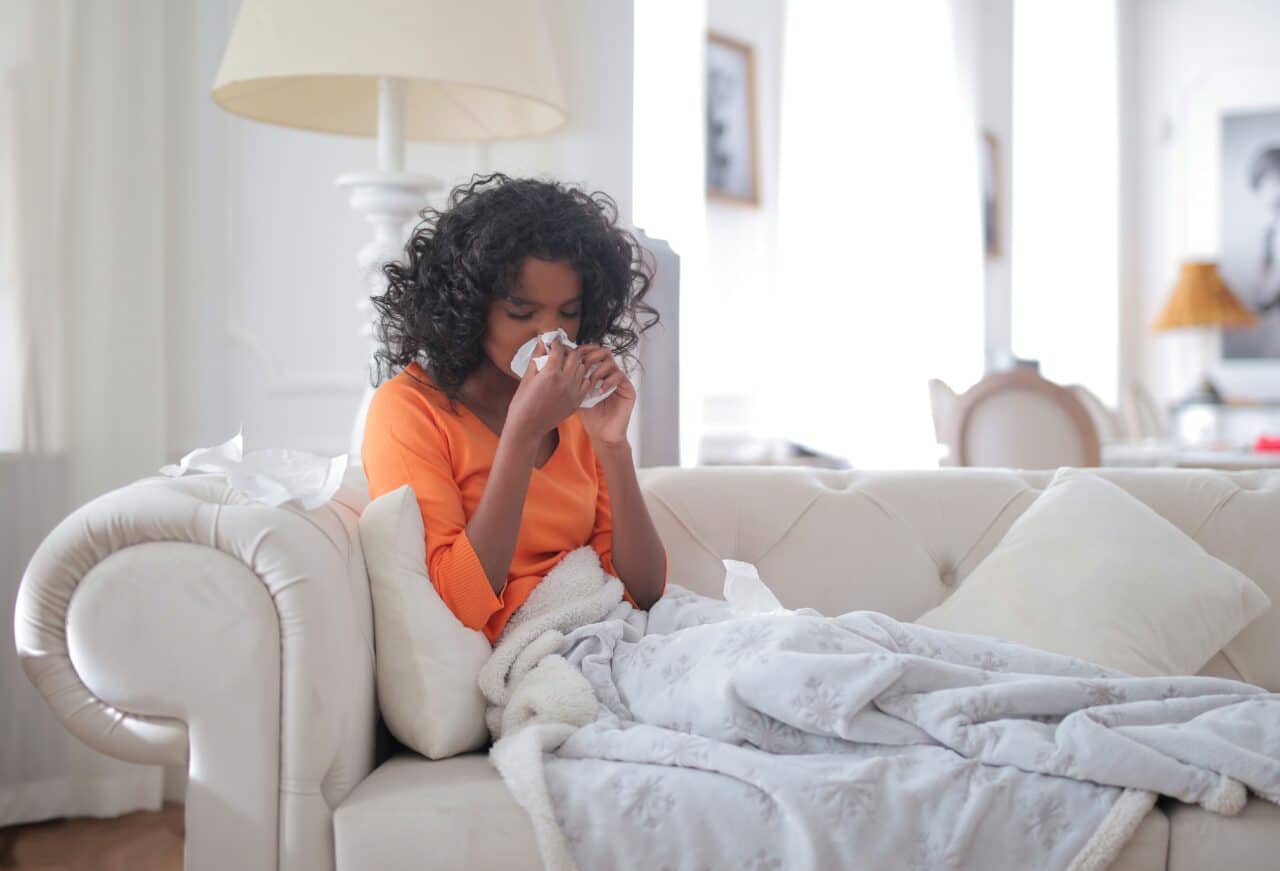Sinus pain, or sinusitis, can put a real damper on your daily life, from going to work to enjoying a holiday meetup with friends at Pine Point Grill. The good news is that most can be treated at home and your symptoms will improve within 10 days.
If you’re currently dealing with sinus pain, continue reading to learn how to manage your symptoms at home as well as when to see a doctor.
Symptoms of Sinusitis

Sinusitis can be confused with other conditions like the common cold or COVID-19. While only a medical provider can give you a proper diagnosis, it can be helpful to know the common symptoms of sinusitis, which include:
- Facial pain/pressure
- Facial congestion/fullness
- Nasal congestion
- Thick nasal discharge
- Hyposmia (reduced ability to smell)
- Fever
Home Remedies for Sinus Pain
- Stay hydrated. Drink a lot of beverages like water and juice. Avoid caffeine or alcohol as these can be dehydrating. Proper hydration helps to thin mucus and reduce symptoms.
- Nasal irrigation. Use a Neti pot or sinus rinse kit to help flush your nasal passages. Always make sure to only use distilled water and follow directions exactly.
- Nasal sprays. Over-the-counter nasal sprays can help moisten your nasal passages, reduce congestion and help to treat inflammation.
- Use a humidifier/vaporizer. This can be especially helpful to use in your bedroom while sleeping. By adding humidity into the air, it can reduce nasal congestion, making it easier for you to get some sleep.
- Rest up. If you have sinusitis, take it as a sign from your body that you need to slow down and get some rest. This will help you recover and fight off any infection.
- Try over-the-counter medications. Decongestants and pain relievers found at Cumberland County pharmacies and grocery stores can help relieve pressure and make you more comfortable as you recover. Be sure to ask your doctor about any medication you take to make sure it’s safe. Decongestants specifically can be harmful for people with certain heart conditions.
When To See a Doctor for Sinus Symptoms
If home remedies aren’t effective or you’re still not feeling well after 7-10 days, make an appointment with a medical provider to see about additional treatment options. Also, if you find yourself having frequent sinus pain, it could be due to an underlying condition like allergies. Treating the cause can also help relieve your symptoms.
For more information or to schedule an appointment, contact Benjamin Liess MD today.